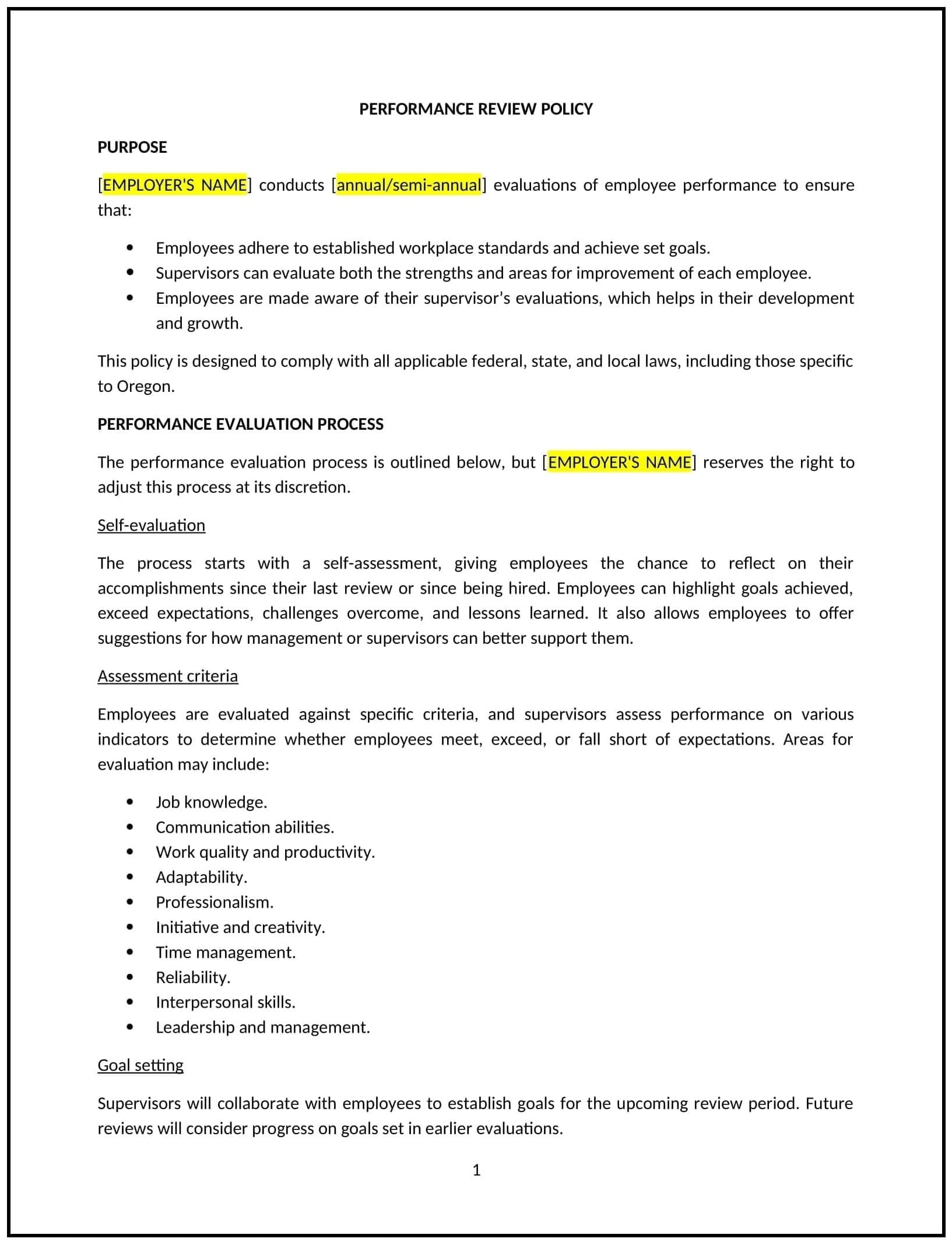Got contracts to review? While you're here for policies, let Cobrief make contract review effortless—start your free review now.

Customize this template for free
Performance review policy (Oregon)
This performance review policy is designed to help Oregon businesses evaluate employee performance, set goals, and provide feedback. It outlines procedures for conducting reviews, addressing underperformance, and recognizing achievements.
By adopting this policy, businesses can improve employee performance, align individual goals with organizational objectives, and foster a culture of continuous improvement.
How to use this performance review policy (Oregon)
- Define review frequency: Specify how often performance reviews will be conducted, such as quarterly or annually.
- Establish evaluation criteria: Outline factors for assessing performance, such as job responsibilities, goals, and behavior.
- Provide feedback: Ensure managers deliver constructive feedback and discuss areas for improvement.
- Set goals: Collaborate with employees to set measurable and achievable goals for the next review period.
- Address underperformance: Develop improvement plans for employees who do not meet performance expectations.
- Recognize achievements: Acknowledge and reward employees who exceed performance expectations.
- Review and update: Assess the policy annually to ensure it aligns with evolving business needs and employee expectations.
Benefits of using this performance review policy (Oregon)
This policy offers several advantages for Oregon businesses:
- Improves performance: Provides employees with clear feedback and goals to enhance their performance.
- Aligns goals: Ensures individual objectives align with organizational priorities.
- Enhances communication: Fosters open dialogue between employees and managers.
- Reduces turnover: Supports employee development and satisfaction, reducing the risk of turnover.
- Promotes fairness: Ensures consistent and objective evaluation of all employees.
Tips for using this performance review policy (Oregon)
- Communicate clearly: Share the policy with employees and include it in the employee handbook.
- Provide training: Educate managers on conducting fair and effective performance reviews.
- Monitor compliance: Regularly review performance evaluations to ensure consistency and fairness.
- Address issues promptly: Take corrective action if underperformance is identified or reviews are mishandled.
- Update regularly: Revise the policy as needed to reflect changes in business needs or performance standards.